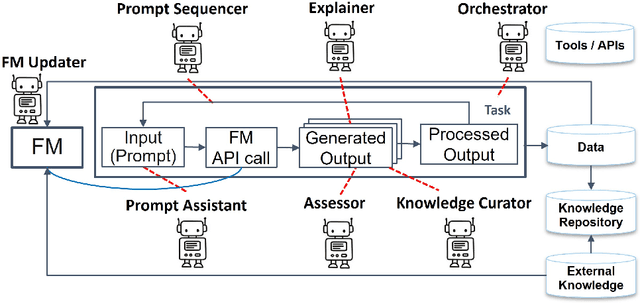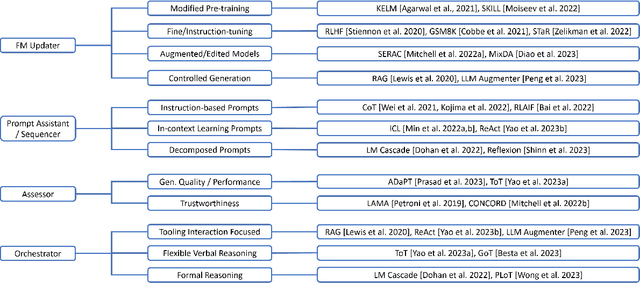Foundation Model Sherpas: Guiding Foundation Models through Knowledge and Reasoning
Paper and Code
Feb 02, 2024


Foundation models (FMs) such as large language models have revolutionized the field of AI by showing remarkable performance in various tasks. However, they exhibit numerous limitations that prevent their broader adoption in many real-world systems, which often require a higher bar for trustworthiness and usability. Since FMs are trained using loss functions aimed at reconstructing the training corpus in a self-supervised manner, there is no guarantee that the model's output aligns with users' preferences for a specific task at hand. In this survey paper, we propose a conceptual framework that encapsulates different modes by which agents could interact with FMs and guide them suitably for a set of tasks, particularly through knowledge augmentation and reasoning. Our framework elucidates agent role categories such as updating the underlying FM, assisting with prompting the FM, and evaluating the FM output. We also categorize several state-of-the-art approaches into agent interaction protocols, highlighting the nature and extent of involvement of the various agent roles. The proposed framework provides guidance for future directions to further realize the power of FMs in practical AI systems.
 Add to Chrome
Add to Chrome Add to Firefox
Add to Firefox Add to Edge
Add to Edge